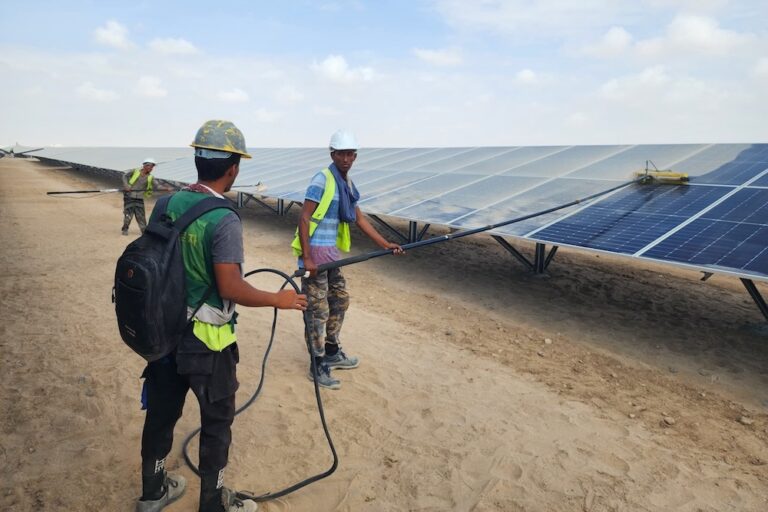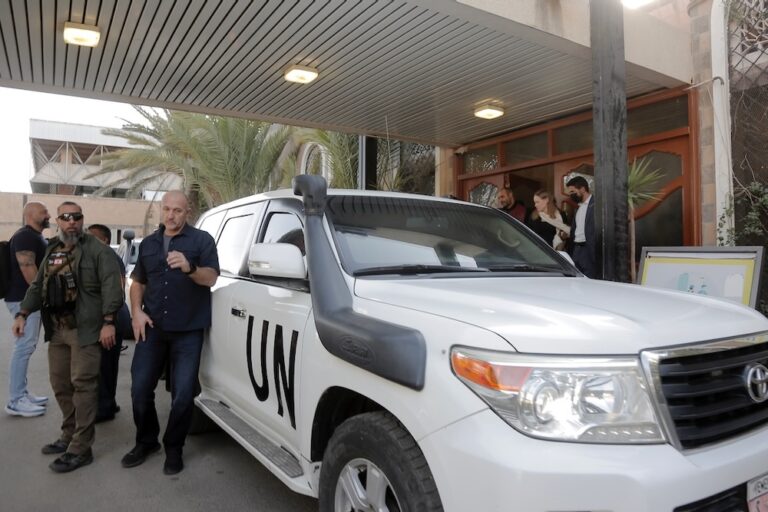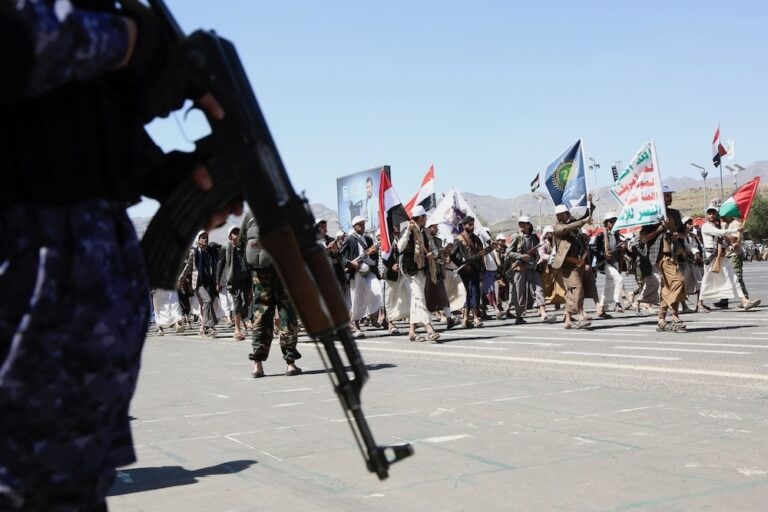Journalists' groups condemned the killing of TV correspondent Khalid Mohammed al Washali, who was killed by a roadside bomb blast in Dhamar, Yemen.
This statement was originally published on ifj.org on 6 January 2015.
The International Federation of Journalists (IFJ) and its affiliate the Yemeni Journalists’ Syndicate (YJS) have today condemned the killing of Al-Masirah TV channel correspondent Khalid Mohammed al Washali, who died last Sunday 4 January 2015 in the city of Dhamar, south of the Yemeni capital, Sanaa. The reporter was one of four people killed by a roadside bomb blast, allegedly carried out by Al-Qaeda in the Arabian Peninsula (AQAP), and became the first journalist to be killed in 2015.
“We condemn the killing of al Washali and we send our condolences to his family and colleagues,” said the IFJ’s president Jim Boumelha. “This killing is a reminder of the mindless violence which continues to prey on unsuspecting members of the public attending events and journalists covering them.”
According to media reports, the bombing targeted a gathering of Houthi militiamen, also known as Ansarullah, in the city of Dhamar. During the attack at least three officers were killed, apart from the journalist, and 25 more people were injured.
Khalid Mohammed al Washali was working for Al-Masirah, a Houthi-owned television channel, which confirmed the reporter’s death on its Facebook page. The three dead officers were members of the “popular committees”, a local police force created by the Houthi militia.
Later on Sunday, Al-Qaeda in the Arabian Peninsula (AQAP) claimed the responsibility for the attack in a statement posted on jihadist websites, saying that it was carried out by a roadside bomb.
In a statement, the Yemeni Journalists’ Syndicate (YJS) presented its sincere condolences to the family and colleagues of the killed journalist while doing his work and called for the perpetrators to be arrested and be brought to justice.
The IFJ also reiterated its protest at the Houthis leader’s, Abdul-Malik al-Houthi, incitement against Yemeni media and asked him to withdraw his forces from media organisations they are currently occupying, like the biggest state-owned newspaper in Yemen al-Thawra, which was occupied by this group since last 16 December.
“Yemeni journalists have been under attack from all warring sides in Yemen who are bent on undermining the independence of media,” added Beth Costa, IFJ General Secretary. “We urge all sides to stop interfering in journalists’ affairs and refrain from all actions likely to endanger the lives of our colleagues who work in some of the worst conditions in the Middle East.”
The Middle East was the second most dangerous region of the world for journalists in 2014 with 31 casualties, after Asia Pacific (35). Two of them took place in Yemen, including the murder of the US photographer Luke Somers, kidnapped and killed last December by a group identified as the al-Qaida branch in Yemen during a failed US operation to release him.


